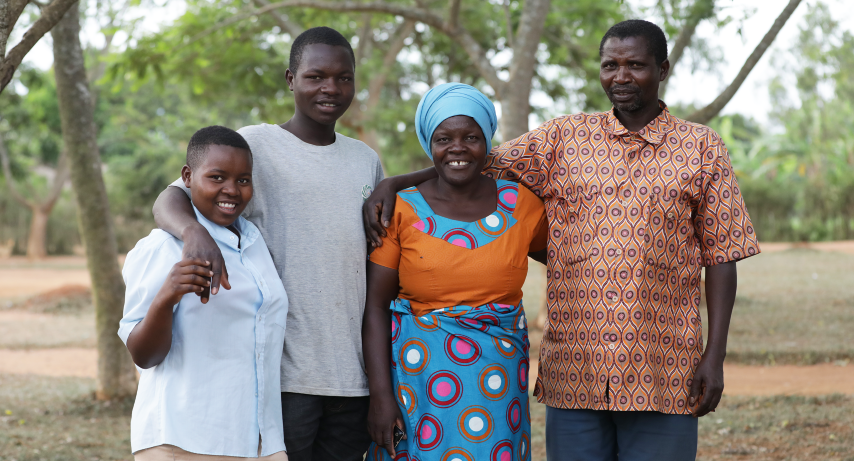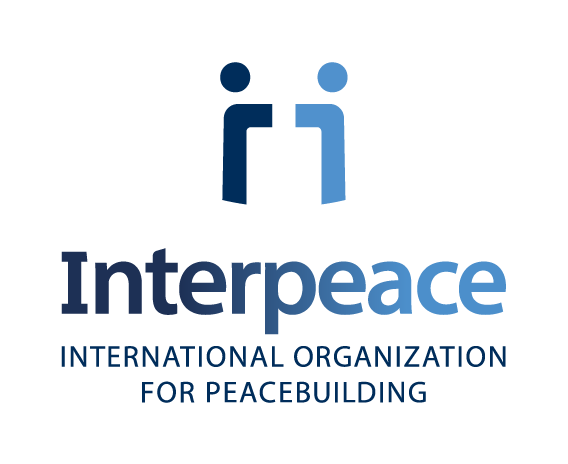Although conflicts are becoming more globalised in nature, in every country individuals, communities and institutions are designing creative solutions to address the multitude of challenges they face. While our strategic aim to ‘rethink peace’ seeks to identify and measure such creative solutions, our efforts under Enhancing Resilience for Peace aim to provide technical, material and financial support and networking to foster and scale up everyday innovations that will make communities more resilient: inclusive, cohesive and prosperous.
As individuals or groups, change agents are fundamental to this effort. Their desire to see a safer and better future and their commitment to contribute to peace directly can be harnessed to build peace at every level. To this end, Interpeace’s country-based and global teams involved over 100,000 people directly in the course of 2022.

Country
Number of people reached
Country
Number of people reached
Awareness raising activities carried out in various countries have helped to set the stage for current and future activities. These activities, often tied to research or occurring around important events in a country or community, provide knowledge and information that enable people to engage in civic life.
Country
Outreach activities
Number of people reached
and Somalia
Country
Outreach activities
Number of people reached
In 2022, Interpeace advanced in its efforts to expand its network of decentralised peacebuilding structures, creating local and sustainable capacity. Whereas in 2021 Interpeace supported 148 local infrastructures for peace in ten country programmes, in 2022 it supported 256 local infrastructures for peace in 12 countries, a 42% increase. This reflects Interpeace’s commitment to ensuring local ownership of peacebuilding processes and sustainability beyond the life of Interpeace’s direct engagement in a community. Interpeace programming worked on 106 conflicts in 2022, in countries such as the DRC, Somalia, Mali, Libya, Kenya and Cote d’Ivoire. Of these, 65% were addressed by local infrastructures for peace, and an additional 13% by mediators trained by various programmes; 10% were addressed by partner teams and the rest by Interpeace directly.
Total number of people trained
Dialogue activities
Gender distribution of participants
across project activities
Age distribution of participants
across project activities
Themes included in country strategies
Strategic Aim 1: Rethink Peace
Although conflicts are becoming more globalised in nature, in every country individuals, communities and institutions are designing creative solutions to address the multitude of challenges they face. While our strategic aim to ‘rethink peace’ seeks to identify and measure such creative solutions, our efforts under Enhancing Resilience for Peace aim to provide technical, material and financial support and networking to foster and scale up everyday innovations that will make communities more resilient: inclusive, cohesive and prosperous.
As individuals or groups, change agents are fundamental to this effort. Their desire to see a safer and better future and their commitment to contribute to peace directly can be harnessed to build peace at every level. To this end, Interpeace’s country-based and global teams involved over 100,000 people directly in the course of 2022.
Country
Number of people reached
Awareness raising activities carried out in various countries have helped to set the stage for current and future activities. These activities, often tied to research or occurring around important events in a country or community, provide knowledge and information that enable people to engage in civic life.
Country
Number of people reached
Number of people reached
and Somalia
To support individuals to drive change more effectively in their communities and institutions, Interpeace trained a total of 25,055 people during 469 national and global trainings in 2022.
To strengthen the capacity of individuals and groups to overcome the impacts of violent conflict and become agents of transformation, Interpeace has increasingly integrated MHPSS in its programming. In 2022, 8,618 people received direct MHPSS through our projects in Rwanda, Mali and the Democratic Republic of the Congo (DRC).
In 2022, Interpeace advanced in its efforts to expand its network of decentralised peacebuilding structures, creating local and sustainable capacity. Whereas in 2021 Interpeace supported 148 local infrastructures for peace in ten country programmes, in 2022 it supported 256 local infrastructures for peace in 12 countries, a 42% increase. This reflects Interpeace’s commitment to ensuring local ownership of peacebuilding processes and sustainability beyond the life of Interpeace’s direct engagement in a community. Interpeace programming worked on 106 conflicts in 2022, in countries such as the DRC, Somalia, Mali, Libya, Kenya and Cote d’Ivoire. Of these, 65% were addressed by local infrastructures for peace, and an additional 13% by mediators trained by various programmes; 10% were addressed by partner teams and the rest by Interpeace directly.
Dialogue is a key tool that Interpeace, partners and local infrastructures for peace use to address conflict and build cohesion. In 2022, 484 dialogues were held in the course of project activities. While the majority of these were intercommunity dialogues, Interpeace has progressively increased dialogue with security actors and authorities in line with its commitment to render these actors more trusted and trustworthy.
Intergenerational dialogues also reflect Interpeace’s commitment to the global YPS agenda. On average 29% of the participants in dialogues were women and 26% were young people.
Overall, Interpeace has expanded its investment in programming that promotes and integrates both gender and youth lenses to advance equality and inclusion. While 32% of projects are designed to specifically integrate gender in their overall strategies, 47% are designed to specifically integrate the YPS agenda.
Gender distribution of participants
across project activities
Age distribution of participants
across project activities
The global food crisis of 2022 and its impact on fragile and conflict-affected contexts have demonstrated the intrinsic link between conflict and livelihoods. Whereas 12 projects explicitly integrated development and peacebuilding in 2021, 15 projects did so in 2022 (representing 44% of the overall portfolio). To complement the efforts of individuals and communities to enhance social recovery and security, over 1,300 people benefited directly from programmes to build livelihood capacity, including expertise in financial management and technical and vocational training. Interpeace and partners supported the development of 51 community development plans, a 400% increase releative to the nine development plans created in 2021. Additionally, 47 small grants assisted initiatives, primarily community-based structures, to promote peace and economic development in their communities.
Interpeace has aimed to be more streamlined and purposeful in creating progressive and systemic change. While in-country peacebuilding is specific to each context, themes such as development/livelihoods, inclusive governance, social cohesion, climate resilience, and psychosocial resilience will become key to much of Interpeace’s programming in years to come.
